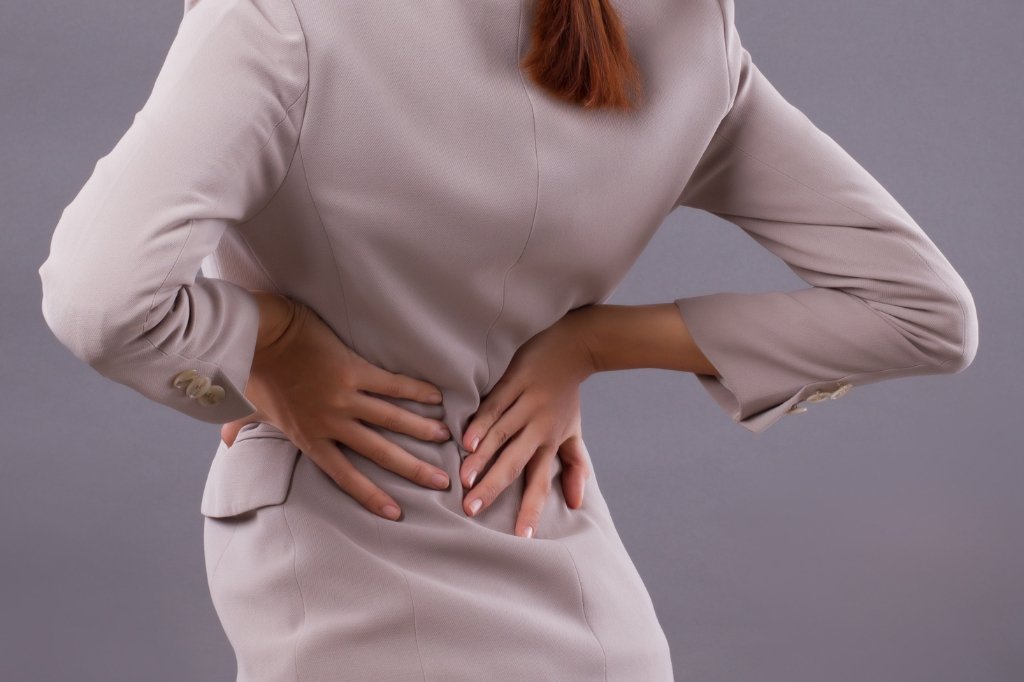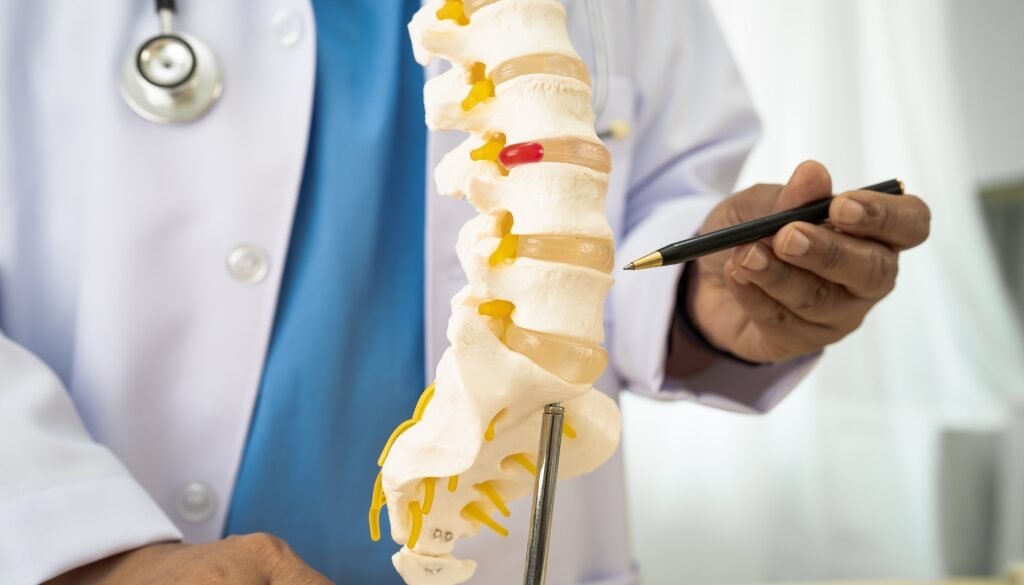Herniated Disc vs Slipped Disc: What’s the Difference?
Back pain is one of the most common health problems affecting people of all ages. Among the many causes of persistent back and neck pain, slipped discs and herniated discs are two of the most widely discussed. Patients often use these terms interchangeably, but are they really the same? And more importantly, how can they be treated effectively in Dubai?
At Lifeline Clinic Dubai, our orthopedic spine specialists regularly treat patients with disc-related spine issues. In this blog, we’ll explore the differences between a herniated disc and a slipped disc, highlight their typical symptoms and causes, and review the most effective treatment options for slipped discs in Dubai.
Understanding the Spine and Discs
Your spine is composed of a number of vertebrae separated by small rubbery discs. The discs act as shock absorbers to allow you to bend, twist, and move comfortably. Each disc has a tough outer shell (annulus fibrosus) and a soft, gel-like centre (nucleus pulposus).
When something goes wrong with these discs due to age, injury, or strain, you may experience pain, stiffness, or nerve compression. Two of the most common disc problems are the slipped disc and the herniated disc.
What Is a Slipped Disc?
A slipped disc is a general term people use to describe back pain related to spinal disc problems. Medically, “slipped disc” usually refers to a bulging disc, where the disc shifts slightly out of its normal position.
- The disc doesn’t actually “slip” out, but bulges outward.
- This bulge may or may not press on nearby nerves.
- The symptoms might range from minor discomfort to tingling, numbness, or paralysis in the arms or legs.
Slipped discs often develop in individuals who spend long hours sitting, maintain poor posture, or regularly lift heavy objects

What Is a Herniated Disc?
A herniated disc, sometimes also called a “ruptured disc,” occurs when the inner gel-like material leaks out via a fracture in the strong outer layer.
- A herniated disc is usually more painful and severe than a bulging disc.
- It often compresses nearby nerves, leading to sharp pain, numbness, or weakness.
- Depending on where the herniation occurs (in the cervical, thoracic, or lumbar spine), symptoms may affect the neck, back, arms, or legs.
Patients often require targeted herniated disc treatment in Dubai, which may include medication, physiotherapy, or surgery in advanced cases.
Slipped Disc vs Herniated Disc: Key Differences
Although many people use the terms interchangeably, there is a difference between a slipped disc and a herniated disc. A slipped disc usually refers to a disc that bulges out of place but remains intact, which may or may not put pressure on nearby nerves. A herniated disc, on the other hand, means the inner gel-like material has broken through the outer shell, often causing more severe nerve compression and pain. In short, a slipped disc is generally milder, while a herniated disc tends to be more serious and may require more advanced treatment.
Causes of Slipped and Herniated Discs
- Age-related wear and tear (degeneration of discs)
- Poor posture and long hours of sitting
- Lifting heavy objects incorrectly
- Sudden injuries from sports or accidents
- Obesity causes extra pressure on the spine.
- Genetics, as disc weakness can run in families
Symptoms to Watch Out For
Both slipped and herniated discs can cause a wide range of symptoms:
- Persistent back or neck pain
- Pain spreads to the arms or legs.
- tingling or numbness in the extremities
- Muscle weakness
- Difficulty walking or standing for long periods
If you experience these symptoms, it’s time to consult an orthopedic spine specialist in Dubai for an accurate diagnosis and treatment.

Diagnosis: How Doctors Confirm the Condition
At Lifeline Clinic Dubai, our specialists use a combination of:
- Physical examination (testing reflexes, muscle strength, and flexibility)
- Imaging tests like MRI or CT scans to identify the exact disc problem
- Neurological tests to check for nerve compression
Disc Herniation Treatment in Dubai
Most disc herniation cases can be treated without surgery through conservative care. Common types of therapies include:
- Pain Management with Medications
- Making lifestyle changes such as weight loss, improving posture, and getting ergonomic support
- Slipped disc physiotherapy in Dubai helps strengthen muscles, improve flexibility, and reduce nerve pressure
- Epidural steroid injections, in more advanced cases
At Lifeline Clinic, we offer personalised slipped disc treatment in Dubai, tailored to each patient’s specific condition and lifestyle.
Herniated Disc Treatment in Dubai
A herniated disc often requires more targeted care. Treatment may include:
- Rest and medication to regulate inflammation.
- Physiotherapy directed at core stability and spinal alignment.
- Non-operative treatment options, such as nerve block injections.
- Minimally invasive surgery is considered if conservative treatment has not worked and there is severe nerve compression.
Patients seeking herniated disc treatment in Dubai should consult the best spine specialist in Dubai early to prevent long-term complications.
When to See a Spine Specialist
You should seek immediate medical attention if you notice:
- Severe pain radiating to arms or legs
- Loss of bladder or bowel control
- Sudden weakness or numbness
- Pain that does not improve with rest
These are red-flag symptoms that require urgent evaluation by an orthopedic spine specialist in Dubai.

Why Choose Lifeline Clinic Dubai?
- Experienced professionals: Our team includes some of Dubai’s most qualified orthopaedic and spine specialists.
- Personalised treatment: From conservative care to advanced interventions, we design a plan that fits your needs.
- Comprehensive care: On-site diagnostics, physiotherapy, and rehabilitation under one roof.
- Patient-focused approach: We educate patients about their condition and guide them through every step of recovery.
When searching for the best spine specialist in Dubai or a reliable treatment for a slipped disc in the UAE, Lifeline Clinic Dubai is your trusted partner.
Tips to Prevent Disc Problems
- Maintain a good weight
- Exercise regularly with spine exercises
- Refrain from lifting heavy weights or learn proper biomechanics for lifting
- Erect a better sitting and working posture
- Utilise supportive chairs and supportive mattresses
- Take regular breaks from long desk working hours
Conclusion
While slipped discs and herniated discs are often confused, they differ in severity and treatment approach. If not addressed, these disorders can cause severe discomfort and interfere with daily activities.
If you have recurrent back or neck pain, consult the orthopedic spine specialists in Dubai at Lifeline Clinic. Regardless of whether you need physiotherapy for a slipped disc in Dubai or comprehensive treatment for a herniated disc in Dubai, we are here to support you as you recover and regain your mobility.
Schedule your appointment today with Lifeline Clinic Dubai and take the first step toward a pain-free spine.




